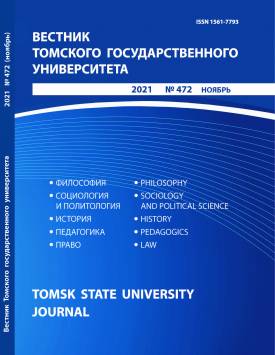Biological Materials and Genetic Data Circulation: Civil Law Regulation
The aim of the study is to determine the features of civil regulation of biological materials and genetic data under the legislation of the Russian Federation. To achieve this aim, regulatory legal acts of the Russian Federation and foreign countries, as well as scientific literature, were studied. The methodological basis of the study was general and specific scientific research methods. The formal legal and comparative legal methods were widely used to determine the turnover of biomaterials and associated genetic information, as well as the features of their legal regime. As a result of the study, it has been established that, from the standpoint of Russian civil legislation, biomaterials are free objects of civil law in circulation (with the exception of biomaterials used in the field of transplantation and for the purposes established by the Federal Law “On Biomedical Cell Products”). It has been inferred that this approach does not take into account the essential feature of biomaterials: they are sources (means of transmission) of genetic information of a personal nature. For this reason, they should be subject to legal regimes of privacy and personal data secrecy, and their use should be subject to the prior informed consent of their donors. The proposed legal regulation of public relations arising from biomaterials will not only allow restricting their circulation, but also protect the rights and legitimate interests of their donors. Genetic information extracted from biomaterials is proposed to be conditionally subdivided into two types: genetic information and genetic data. The legal significance of this classification lies in the fact that it will take into account the peculiarities of the legal regime of each of the selected type of genetic information, including their turnover capacity. Genetic information, since it contains personal information, should be subject to legal regimes of privacy and personal data. In this connection, any use of such information should be carried out only with the prior information consent of their donor. Due to its impersonal nature, genetic data do not fall under the legal regime of privacy and are not considered personal. Genetic data, by virtue of their intangible nature, are, like the results of intellectual activity and marketing designations, objects of civil law withdrawn from circulation; however, absolute property rights to them are transferable.
Keywords
biological materials, genetic data, civil circulation, privacy, personal data, prior informed consent, donorAuthors
| Name | Organization | |
| Imekova Maria P. | Tomsk State University | imekova_maria@mail.ru |
References

Biological Materials and Genetic Data Circulation: Civil Law Regulation | Vestnik Tomskogo gosudarstvennogo universiteta – Tomsk State University Journal. 2021. № 472. DOI: 10.17223/15617793/472/30
